When I first moved to New York, I was rootless. I made sure of that, having broken up with the woman who is now my wife (necessitating a prodigious effort to win her back years later).
It was September 1986. I had my Datsun B210, a (surprisingly short in retrospect) list of contacts, the promise of a room in a Manhattan apartment, my keyboards and four-track recorder, $3000.00 in savings, a Master’s degree, and a dream of being a jazz musician. I was nervous, but not reticent. Maybe it was the foolhardy confidence of youth. Maybe it was the pride of following in the path of so many generations of musicians before me. Maybe it was the fact that 1986 felt like one of the better times in history to be young gifted and black. 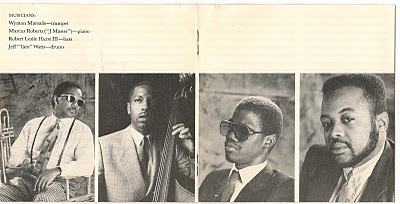 As I head toward New York now, some 28 years later, the butterflies are familiar. I wonder about my reception, about whether I will measure up. But I also feel something different. It’s only nine days, but I feel tugged, dislocated. I feel uprooted.
As I head toward New York now, some 28 years later, the butterflies are familiar. I wonder about my reception, about whether I will measure up. But I also feel something different. It’s only nine days, but I feel tugged, dislocated. I feel uprooted.
New York City is not the hard-edged place it was in the mid-1980’s. Morningside Heights, the East Village and Bedford-Stuyvesant don’t’ strike the note of fear they did at that time. Broadway and Disney have taken over Times Square and the subways are clean. It is still true that New York is easiest for the rich. Even though the spread of gentrification has made previously off-limits parts of New York safe for Starbucks, Hanna Andersen & Banana Republic.
New York is also still the place for the young and ambitious. A young Portlander who recently moved to the city to begin his career as lawyer wrote me: “New York is a good place for a young man to cut his teeth in any profession.“
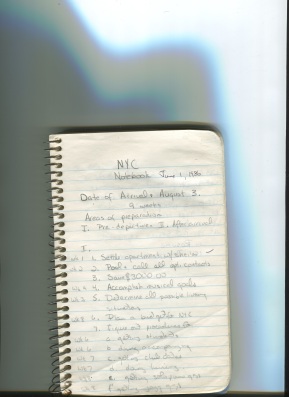
Although I didn’t own a home, I felt at home in different places in New York. I had my neighborhood– or more accurately, multiple neighborhoods–that felt like my stomping grounds at different times during my decade there. The Upper West Side, Park Slope & Fort Greene, Brooklyn; even North Yonkers and Hastings-on-Hudson all felt like my place at times, as did the Midtown rehearsal studios & music stores, and Greenwich Village clubs. By the time I left in 1996, I had a drycleaner, a bank, a dentist, even some hobbies-having discovered sailing just a short train-ride up the Hudson.
But two things that I have now that I didn’t then are a connection to place. Much as I loved the view of the Cloisters from the Westside Hwy, and sunny days in Central Park, I didn’t have ’t a sense of grounded-ness in New York, and gazing at the harbor in Brooklyn Heights, wasn’t like surveying the Gorge from Crown Point. There wasn’t the visceral connection between the land and its history. Maybe you need living things to feel that. You need 100-year-old trees, or million-year old rocks.
The other thing missing for me in New York was a connection to community—a feeling of belonging that went deeper than friends, or local sports teams. I was looking for a sense of contribution, that I was a piece, even in a small way, of the ongoing story of a place. To be part of a scene.
The Willamette Valley, more specifically Portland as its cultural locus, is known for scenes and sub-cultures: the indie music scene; the DIY Maker scene; the foodie culture; the artisanal coffee scene; food carts, craft-brewing, pinball;, locally-grown food, pedestrian and bike and outdoor culture. There is a sense of abundance in this plethora of scenes. There is a feeling of the possible in this part of the world that I think seeps out of the verdant landscape into the politics the urban planning, the ways of living on the land.
I’ve been thinking and writing lately using the metaphor of the jazz scene as an ecology. In my analogy, the young jazz musician is like a wild spore or twig that tumbles across the landscape, carrying musical DNA and seeking fertile ground in which to grow- a place to bear fruit.
It was clear on my first visit to Portland, that its territory allowed for different realities- different ways of living and thriving. How else to explain that musicians I had never heard of (insular East-coaster that I was in 1995) owned homes, when I, touring half the year could barely keep up with rent. How was it possible for them to so visible thrive as “local” musicians?
I seems to me now that if Portland were a soil it would be a warm loam, full of the stuff that breeds quality of life, and nurtures the beginnings of things. New York, by contrast, is a dense clay –hard to penetrate, requiring a hardiness and resourcefulness to obtain even a bit of purchase below the surface. The things that denote stability in New York, the rent-controlled apartment, the array of adjunct teaching positions, the regular weekend slot or good sideman gig–are hard-won and take time and a measure of luck.
I remember loving the challenge of this environment in my 20’s. I embraced the uncertainty, the mobility, and the fact that the next phonecall could take me to parts unknown. I felt like I was ready to be blown by the wind, ready to hustle for purchase in the New York landscape, to use initiative and the energy of youth to carve out new opportunities, and find my niche.
Close on three decades later, my memory – digital and human – is satisfyingly filled with reminders that I have deep roots in the Northwest now—photos of my wife and son, vacation trips, birthday parties, the living room full of Christmas presents, concerts played and presented, satisfying artistic collaborations, projects completed, classes taught, relationships built, differences made in a community.
The thing is, I have a hard time disconnecting those memories from the landscape in which they occurred. From the fertile green, the open spaces, the mountain, the two rivers, the creative culture, the trees, the land-use policy, the ideas, and the people who live them out. It is hard to imagine me, separate from the community and the territory in which these things happened. The things I’m exploring now weren’t possible for the younger, rootless me.
I used to be pretty good at traveling. But I’ve lost the routines and the rituals that frequent travelers acquire over time- what to do in airports, how to score the exit row seat, how to eat healthy in an unfamiliar environment, how to disconnect and wander, how to turn a hotel room into a piece of home. In Pete Townshend’s autobiography “Who I Am,” he talks about his reticence toward touring as an adult, after marriage and fatherhood, About how he has to brace for not just for the work of performing, but for the feeling of being uprooted.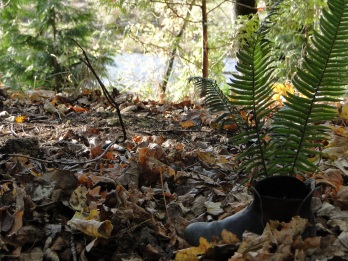 Makes sense. The roots we lay down have to draw nourishment from something, after all I’m reticent now I know it is only nine days. But I long for familiar faces and places. I’ll sip some hot Stumptown coffee, and think about who I have become in the Territory where I have roots.
Makes sense. The roots we lay down have to draw nourishment from something, after all I’m reticent now I know it is only nine days. But I long for familiar faces and places. I’ll sip some hot Stumptown coffee, and think about who I have become in the Territory where I have roots.

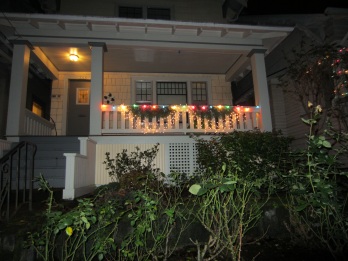
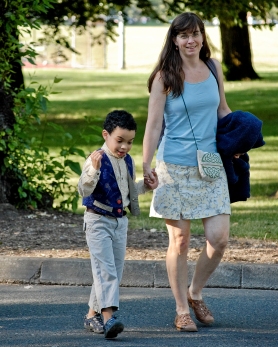
Thank you. Quite fine, and true.
Fascinating discussion of what it’s life in New York and Portland, the different pressures of being younger and older, and the requirements of traveling! — Dave Barber (I’m Tom’s father)
Thank You. I wanted to ask you about how you felt about returning. I have the same butterflies in my stomach! Give your concerns to the 4 Winds, and your Spirit to the Universal Source. See you in four days.
Good stuff…Of course beauty is in the eye of the beholder….I would love to visit Portland soon………NYC is awesome for me